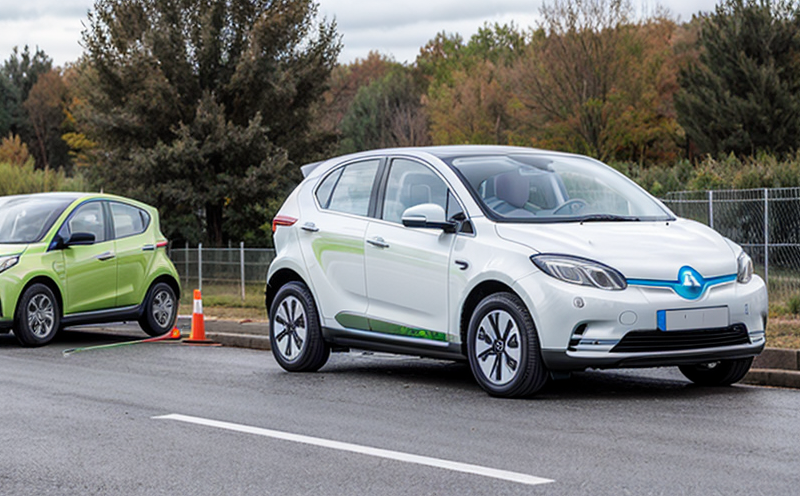UL 2054 EV Household and Commercial Battery Testing
The UL 2054 standard is a crucial benchmark in the field of electric vehicle (EV) battery safety. This standard specifies requirements for the electrical, mechanical, thermal, and other safety aspects of household and commercial batteries used by EVs. Our laboratory specializes in providing comprehensive testing services that ensure compliance with this stringent specification.
Electric vehicles are rapidly gaining popularity due to their environmental benefits and operational cost advantages. However, ensuring that these vehicles are safe for both consumers and the environment is paramount. The UL 2054 standard plays a pivotal role in achieving this safety by setting comprehensive guidelines for battery design, manufacturing, and usage.
Our testing process encompasses several critical areas including electrical performance, thermal stability, mechanical integrity, and chemical compatibility. We utilize state-of-the-art equipment to simulate real-world conditions that batteries might encounter during operation and storage. This includes high-temperature cycling tests, overcharge/overdischarge scenarios, short-circuit protection checks, and more.
Our laboratory adheres strictly to the provisions outlined in UL 2054 to ensure accurate and reliable results. Each test is meticulously documented and reported according to industry standards. Compliance with this standard not only enhances product safety but also builds trust among consumers who value reliability over convenience.
We understand that meeting regulatory requirements can be challenging, especially for companies operating in multiple regions or those involved in international trade. Our team of experts works closely with clients throughout the testing process to ensure they meet all necessary criteria. From initial consultation through final report generation, we provide full support and guidance tailored specifically towards your needs.
The importance of UL 2054 compliance cannot be overstated. By investing in thorough battery safety testing early on in product development, manufacturers can prevent costly recalls later down the line while also enhancing brand reputation among eco-conscious consumers.
Benefits
- Enhanced Safety: Ensuring that your EV battery meets or exceeds UL 2054 requirements helps protect users from potential hazards associated with improper design or manufacturing.
- Market Access: Compliance with this standard opens doors to markets where stringent safety regulations are enforced, including North America and parts of Europe.
- Better Brand Reputation: Demonstrating commitment to high standards can significantly improve customer perception and loyalty.
- Reduced Risks: By identifying potential issues early in the development cycle, you minimize the risk of costly product recalls or legal action.
International Acceptance and Recognition
The UL 2054 standard is widely recognized globally for its stringent requirements regarding household and commercial batteries used in EVs. This makes it a preferred choice among manufacturers looking to meet international safety standards.
In North America, compliance with UL 2054 is often required by regulators as part of certification processes for electric vehicle components. Similarly, in Europe, adherence to equivalent standards such as IEC 61973-1 also emphasizes the importance placed on battery safety across different regions.
Our laboratory ensures that all tests conducted adhere strictly to these international norms so that your products are ready for global markets without additional modifications. We stay updated with any changes or updates made to these standards to ensure our testing remains current and relevant.
Environmental and Sustainability Contributions
Battery safety is closely linked to environmental sustainability, particularly in the context of electric vehicles. Improperly designed or manufactured batteries can lead to hazardous waste if not handled correctly at end-of-life disposal.
The UL 2054 standard encourages manufacturers to consider both immediate operational safety and long-term environmental impact when designing their products. By ensuring that your EV battery meets these stringent requirements, you contribute positively towards reducing the carbon footprint associated with transportation.
Our testing services go beyond mere compliance; they help drive innovation in green technology by providing data that can be used to improve future generations of batteries. This not only benefits the environment but also supports the growth of sustainable industries worldwide.





